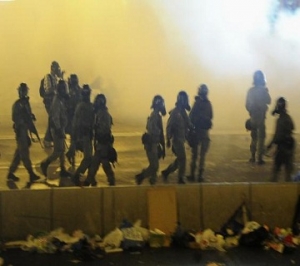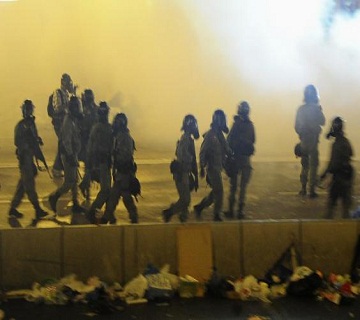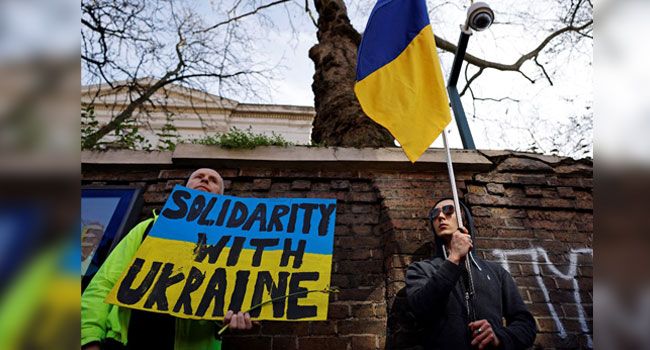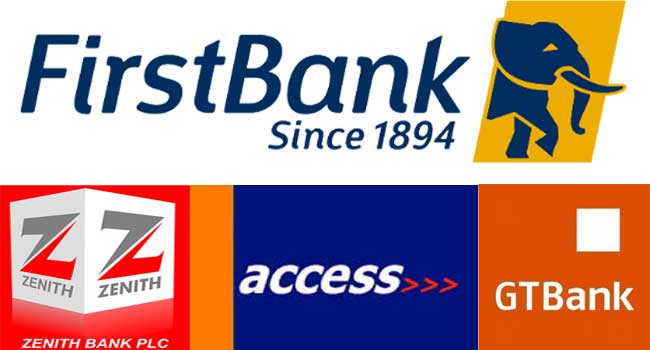
The unrest, the worst in Hong Kong since China resumed its rule over the former British colony in 1997, sent white clouds of gas wafting among some of the world’s most valuable office towers and shopping malls before riot police suddenly withdrew around lunchtime on Monday, after three nights of confrontation.
“Since calm has been largely restored to the streets where citizens gathered, riot police have withdrawn,” the Hong Kong government said in a statement. It called on protesters to stay calm and disperse peacefully “as soon as possible”.
China rules Hong Kong under a “one country, two systems” formula that accords the territory limited democracy. Tens of thousands of mostly student protesters are demanding Beijing give them full democracy, with the freedom to nominate election candidates, but China recently announced that it would not go that far.
As riot police withdrew on Monday, weary protesters slept beside roads or sheltered from the sun beneath umbrellas, which have become a symbol of what some are calling the “Umbrella Revolution”. In addition to protection from the elements, umbrellas have been used as flimsy shields against pepper spray.
Nicola Cheung, an 18-year-old student from Baptist University, said the protesters in the central Admiralty district were assessing the situation and planning what to do next.
“Yes, it’s going to get violent again because the Hong Kong government isn’t going to stand for us occupying this area,” she said. “We are fighting for our core values of democracy and freedom, and that is not something violence can scare us away from.”
Organizers have said that as many as 80,000 people have thronged the streets after the protests flared on Friday night. No independent estimate of numbers was available.
The protests, led mostly by young tech-savvy students who have grown up with freedoms not enjoyed in mainland China, represent one of the biggest threats confronted by Beijing’s Communist Party leadership since its bloody 1989 crackdown on pro-democracy student protests in and around Tiananmen Square.
Cracking down too hard could shake confidence in market-driven Hong Kong, while not reacting firmly enough could embolden dissidents on the mainland.
Televised scenes of the chaos in Hong Kong over the weekend have also made a deep impression on many viewers outside Hong Kong. That was especially the case in Taiwan, which has full democracy but is considered by China as a renegade province that must one day be reunited with the Communist-run mainland.
“Taiwan people are watching this closely,” Taiwanese President Ma Ying-jeou said in an interview with Al Jazeera.
The U.S. Consulate General in Hong Kong issued a brief statement calling for all sides to “refrain from actions that would further escalate tensions”.
Banks in Hong Kong, including HSBC, Citigroup, Bank of China, Standard Chartered and DBS, temporarily shut some branches and advised staff to work from home or go to secondary branches.
The Hong Kong Monetary Authority (HKMA), the city’s de facto central bank, said it had activated business continuity plans, as had 17 banks affected by the protests.
The HKMA said the city’s interbank markets and Currency Board mechanism, which maintains the exchange rate, would function normally on Monday. It said it stood ready to “inject liquidity into the banking system as and when necessary”.
Hong Kong witnessed extraordinary scenes at the weekend as thousands of protesters, some armed with nothing more than umbrellas, blocked the main road into the city and police responded with pepper spray, tear gas and baton charges.
Markets more or less took the weekend’s unrest in their stride, proof yet again of the pre-eminent place trade has always taken in Hong Kong.
Hong Kong shares fell 2 percent.



